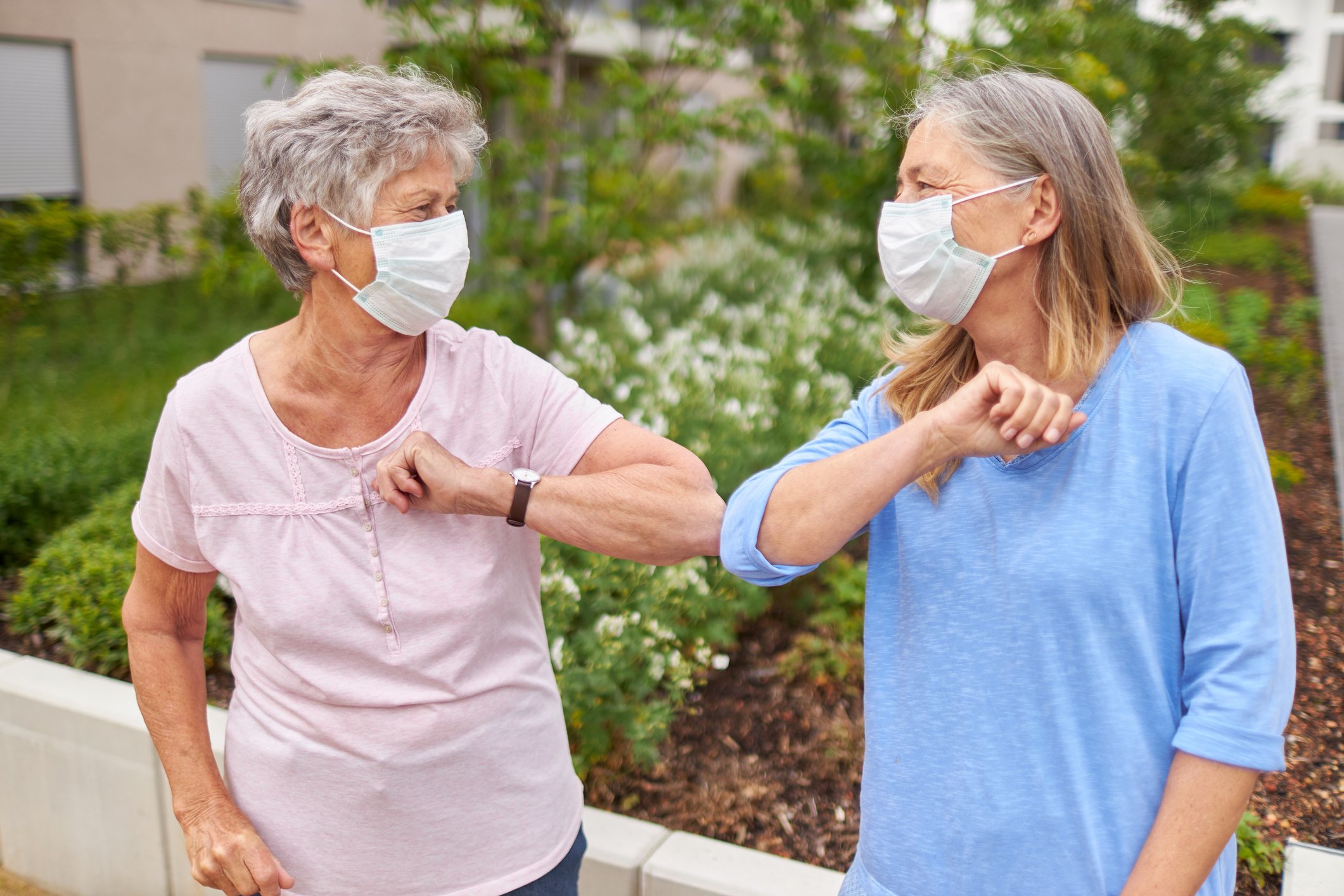
The pandemic has been a difficult, often stressful time for many seniors, but as restrictions begin to ease and cases go up, some may also now be feeling anxiety about being among people again. Even being with loved ones can trigger anxiety in some seniors. But understanding what is causing the social anxiety can help seniors better adjust and minimize its occurrence and impacts. Here’s a look at what top experts have to say.
What is social anxiety?
According to the Mayo Clinic, social anxiety or social phobia is a disorder that amplifies normal feelings like nervousness or mild fear in certain social situations. These feelings can eventually become disruptive to everyday life and may bring about physical symptoms like sweating, trembling, nausea, or dizziness.
Although there are many reasons people manifest this anxiety, such as fear of being judged or criticized, when it comes to COVID, it may simply be fear of getting sick or of getting back to a normal life. Everyone is different, but after more than a year of COVID-19, seniors who have been secluded may be especially prone to these feelings, even if they want to be out and about again.
The COVID connection
As the third greatest mental health problem in the world, social anxiety disorder was a fairly common affliction prior to the COVID-19 pandemic, but life during COVID may have exacerbated the problem for some. The restrictions and routines required during the past year, like social distancing, wearing a mask, and avoiding social groups have trained us to behave in a very hands-off way toward others. For some, stopping these safety precautions may be difficult.
Also, not helpful is the constantly changing information from health experts that can also contribute to a feeling of uncertainty when it comes to whether or not it’s really safe to be in groups, hug your grandkids, go without a mask, or enjoy a meal out at a restaurant.
Another take on social anxiety and COVID is that some may be afraid that they are perceived as a threat by others if they offer to shake hands, don’t wear a mask, or walk too close to someone in the grocery store.
While many take it in stride, for some seniors, it can become overwhelming and cause fear and anxiety that can eventually be life changing, and not in a good way. But there are ways to minimize social anxiety and learn to live again. To better understand social anxiety and its link to COVID-19, the Cedars Sinai article, “Managing Post-Pandemic Social Anxiety,” is a great resource.
Arresting anxiety
Unless a senior was already diagnosed with a social anxiety disorder before the pandemic, many may simply have feelings of anxiety because they are out of practice with normal social activities like greeting friends, meeting new people or attending get-togethers.
After more than a year of very limited human interaction and living behind a mask, a simple meet-up with friends may seem almost like going out on a first date. It can simply be scary to get back into the social swing of things and use the social cues and norms that were a part of everyday life before.
The article “Shaking Off the Social Rust after COVID-19” looks at how COVID-19 has created feelings of social fear and anxiety and provides expert tips for understanding and conquering them.
Help is available
When social anxiety becomes disruptive to life by keeping a person home alone or unable to connect with others, it’s time to get help. The first step is to talk to a physician and explain symptoms and circumstances when they occur. The doctor can then offer treatment options such as those noted in the healthline.com article, “Treating Social Anxiety Disorder,” including:
- Therapy to help develop skills to understand and address what triggers the anxiety.
- Psychotherapy to help get to the root causes of the anxiety.
- Support groups to provide a safe place to reconnect with people and learn from others with the same feelings.
- Medications such as selective serotonin reuptake inhibitors or SSRIs, serotonin-norepinephrine reuptake inhibitors or SNRIs, Monoamine oxidase inhibitors or MAOIs if panic attacks occur, beta-blockers, and anti-anxiety medications like Xanax and Ativan.
Other options can ease mild symptoms. Among these are meditation, yoga, acupuncture, and deep breathing exercises, any or all of which can help manage anxiety and provide a sense of well being.
At Ganton’s Countryside we understand that the pandemic has had a profound effect on each of us. Our community strives to provide a safe and nurturing place for all of our residents to live, with help available whenever needed. For more information about Countryside, please call Margaret Nagel at (517) 206-5000 or download our brochure to learn about our care levels, cost, and amenities.

